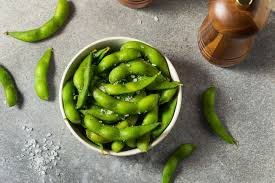When you’re following a FODMAP-friendly diet, it can feel like a minefield figuring out which fruits are safe to eat. Some fruits that seem healthy at first glance can cause major digestive discomfort for those dealing with IBS (Irritable Bowel Syndrome) or other sensitive stomach conditions. Fortunately, one fruit that consistently ranks well in terms of FODMAP safety is kiwi. But what’s the full story behind this vibrant, nutrient-rich fruit? Let’s explore the science, portion size guidance, and digestive benefits behind the question: is kiwi low FODMAP?
What Is FODMAP and Why It Matters?
FODMAP stands for Fermentable Oligo-, Di-, Mono-saccharides And Polyols—short-chain carbohydrates that are poorly absorbed in the small intestine. These compounds are known to trigger bloating, gas, cramping, and diarrhea in people with IBS.
The goal of a low FODMAP diet is to identify and reduce foods that contain high levels of these carbs to minimize digestive distress. Since fruit is naturally high in sugar, many types are off-limits, especially those rich in fructose or polyols like sorbitol.
Kiwi: The Digestive-Friendly Fruit
Kiwi—also known as kiwifruit or Chinese gooseberry—is a small, fuzzy fruit with bright green flesh and tiny edible seeds. It’s known for its high vitamin C content, antioxidant properties, and digestive enzyme called actinidin, which helps break down protein in the stomach.
But what about its FODMAP content? The good news is that kiwi has been tested and approved by Monash University (the authority on FODMAP research) as a low FODMAP fruit—when eaten in appropriate portion sizes.
Why Kiwi Is Considered Low FODMAP
The Monash University Low FODMAP Diet app confirms that a green kiwi (up to 2 medium-sized fruits or 150g) is low in FODMAPs. This makes it an ideal fruit to include during the elimination phase of a low FODMAP diet. Kiwi is low in fructose and sorbitol, which are common triggers in many fruits like apples, watermelon, and pears.
However, it’s important to note that eating too much kiwi in one sitting may push the FODMAP content into a higher range. Like with many low FODMAP foods, portion control is essential.
Nutritional Benefits of Kiwi (Beyond FODMAP)
Here’s what makes kiwi more than just a safe fruit for your gut:
-
Rich in Vitamin C: Just one kiwi can provide more than 100% of your daily vitamin C needs.
-
Source of Dietary Fiber: Helps regulate bowel movements and supports gut health.
-
Natural Laxative Effect: Due to its fiber and enzyme content, kiwi has been shown to improve stool consistency.
-
Antioxidant-Rich: Contains lutein, beta-carotene, and polyphenols that support immune function.
-
Low in Calories: Around 42 calories per fruit, making it a weight-friendly choice.
Best Ways to Enjoy Kiwi on a Low FODMAP Diet
If you’re looking for creative and safe ways to include kiwi in your diet, here are a few ideas:
-
Fresh Kiwi Slices: Eat as-is for a refreshing snack.
-
Smoothies: Combine 1 kiwi with low FODMAP ingredients like lactose-free yogurt or almond milk.
-
Toppings: Use chopped kiwi over lactose-free cottage cheese, oatmeal, or rice pudding.
-
Frozen Kiwi Bites: Freeze slices for a sweet, cool snack during summer.
Just remember to keep your intake to 1–2 medium kiwis per serving to remain within low FODMAP limits.
Golden Kiwi vs Green Kiwi – Is There a Difference?
Both green and golden kiwis are generally low FODMAP in moderate servings. Golden kiwis tend to be slightly sweeter and less acidic but still offer similar nutritional benefits. Monash University has also tested golden kiwi, and 1 medium golden kiwi (approx. 90g) is considered low FODMAP.
So if you prefer a sweeter, less tangy flavor, golden kiwi is a fantastic alternative with the same gut-friendly stamp of approval.
Who Should Avoid Kiwi?
Although kiwi is low FODMAP, there are a few instances where some people should proceed with caution:
-
Allergy Warning: Kiwi is a known allergen for some individuals, especially those allergic to latex, bananas, or avocados.
-
Excessive Fiber Sensitivity: In rare cases, people with highly sensitive GI tracts may experience discomfort from the seeds or fiber.
-
Overconsumption Risk: Eating large amounts can move kiwi from the low to high FODMAP category.
Final Verdict: Is Kiwi Low FODMAP?
If you’re following a low FODMAP diet, you’ll be happy to know that the answer to is kiwi low FODMAP is a resounding yes. Kiwi is safe, nutritious, and gut-friendly—making it a perfect fruit choice for those managing IBS or sensitive digestion.
Just stick to the recommended portion (1–2 medium kiwis), and you can enjoy all the flavor, fiber, and vitamin-packed benefits without discomfort. It’s one of the few fruits that checks nearly every box: low FODMAP, high in nutrients, naturally hydrating, and easy to prepare.







